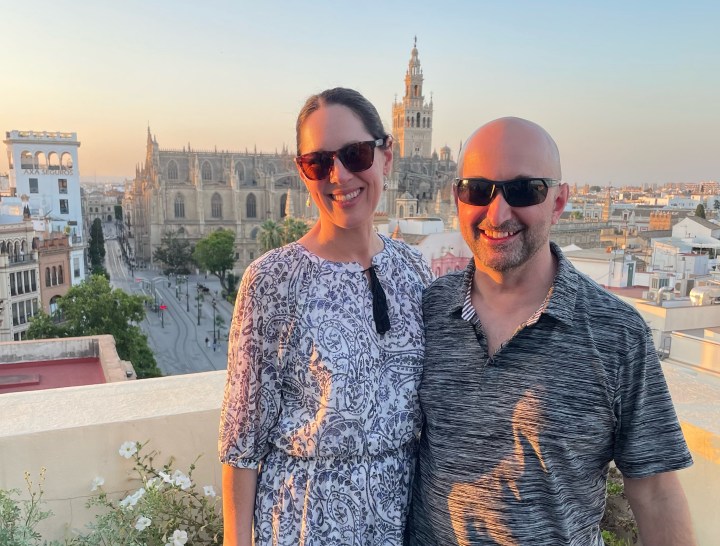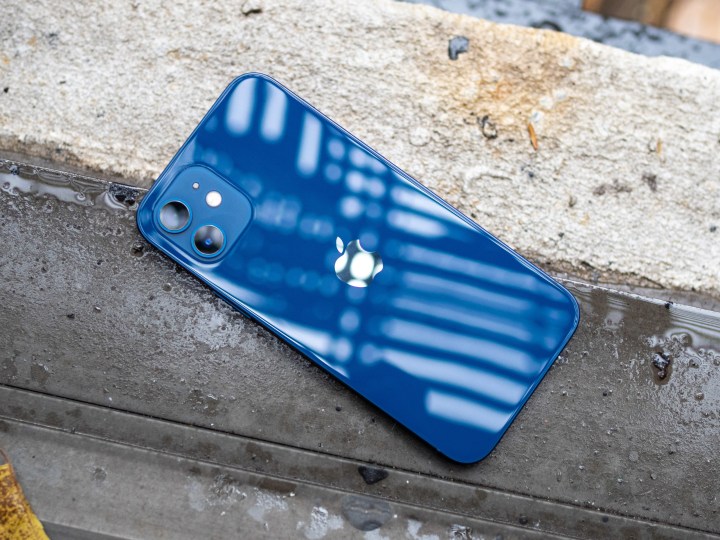
Our trip to Spain and Morocco, which my wife, Julie, had meticulously planned for 15 months, started off rather inauspiciously on June 25. After arriving in Chicago from Portland, Oregon, we learned that our connecting flight to Newark, New Jersey, had been canceled due to weather concerns. As we waited in line for two-and-a-half hours to talk to a United Airlines agent, we were told via text by a customer service rep that we might be stuck in the Windy City for two days.
A 30-year Spanish teacher, Julie was on the verge of fulfilling a lifelong dream of visiting Spain. Now, several activities were in danger of being erased from her bucket list as her worst fears about the trip were being realized. When we finally made it to the service desk, our hope was all but snuffed out. We explained the situation to the agent, who spent several minutes looking at his computer wordlessly. He eventually looked up and said: “I can you get out on a flight tonight.”
“To Newark?” Julie asked.
“No,” he replied, “all the way across the Atlantic.”
Julie burst into happy tears, and I asked the agent if he liked cheesecake, as there was a kiosk that sold it just steps away. He said he didn’t, but added that his wife did. “Well,” I said, “your wife is having cheesecake tonight.”
A couple of hours later, we were on a flight to Brussels. We would then head to Madrid and were set to arrive just nine hours behind schedule. All was right with the world — until I had an unsettling realization just as I was about to tuck into an honest-to-goodness Belgian waffle in the Brussels airport. My iPhone was nowhere to be found.
I’ve been phone-less for three weeks — and I haven’t really missed it that much.
After frantically rifling through my bags, breathlessly retracing our steps, and finally making a mad dash to the security checkpoint to talk to an airport official, I realized that my phone was gone and I would be lucky to ever see it again. Strangely, a calm settled over me. As we were walking back to our gate, I turned to Julie and matter-of-factly said: “Screw it. I’m not going to let this ruin our vacation.”
Now, as an admittedly anxious person who normally freaks out and obsesses over stuff like this, that was a bold statement. But I’m proud to say that I stayed true to my word. More surprising than that, though, is that I’ve been phone-less for three weeks — and I haven’t really missed it that much.
No big deal

Maybe it was the flurry of activities Julie had planned that distracted me from not having my phone — or the fact that I had also brought along my new iPad (which I somehow managed not to lose) — but I never really missed my iPhone 12 during the 17-day trip. Before we set off on our adventures each day, I would crack open the iPad to check my email, Facebook, our bank account (I’m a glutton for punishment), and how my fantasy baseball teams fared the previous day. No more checking my phone every few minutes out of habit for me.
For obvious reasons, Julie was in charge of the photo-taking, and if there was a particular shot I wanted, I would simply ask for her phone and snap away. I also texted my adult daughter and son and told them what had happened and to text Julie if they needed to get ahold of me.
Maybe the most annoying aspect (for Julie) was that I didn’t bring along my Apple Watch (for fear of losing it, ironically), so I was always asking her for the time. All in all, that’s a pretty small inconvenience.
A freeing feeling

Maybe the most unforeseen consequence of not having my phone for an extended period has been the sense of being freed from a vaguely oppressive compulsion. With no phone constantly at my fingertips, nagging questions like “Did someone text?” or “Are the Yankees winning?” (these days, the answer to that question is probably “No”) don’t enter my mind nearly as much. And it takes a lot more effort to go grab my tablet or sit down at my laptop to find out those answers, which translates to me fixating less on such things in general.
Another unexpected benefit of losing my phone was that it allowed me to soak in the moment as we visited such impressive sites as the Alhambra — an ancient palace and fortress complex in Granada, Spain — and not worry about capturing photos of every single thing we saw. I was really impressed by Julie, who knew that lesson without having to lose her phone. Several times during the trip — including while we sat atop camels watching the sunset in Morocco’s Agafay Desert — she put her camera away and said, “Now, I’m just going to take this all in.”
The loss of my phone also resulted in a lot of meaningful conversation — with Julie and other travelers — that may not have happened otherwise because, let’s face it, for all of their positives, smartphones have a detrimental effect on human interaction. We ate at restaurants a lot on our trip, and I can’t count the number of times I saw people sitting at their tables staring at their damn phones instead of actually talking to each other.
A new leaf?

So, when my phone either turns up — I’m convinced it’s still lurking under seat 42K — or I’m forced to get a new one, will I be a changed man? The jury’s still out on that one.
After using smartphones for nearly a decade, those habits are hard to break permanently, but I certainly hope that’s the case. Why? Despite the fact that my phone weighs mere ounces, it feels like a major weight has been lifted from me.


